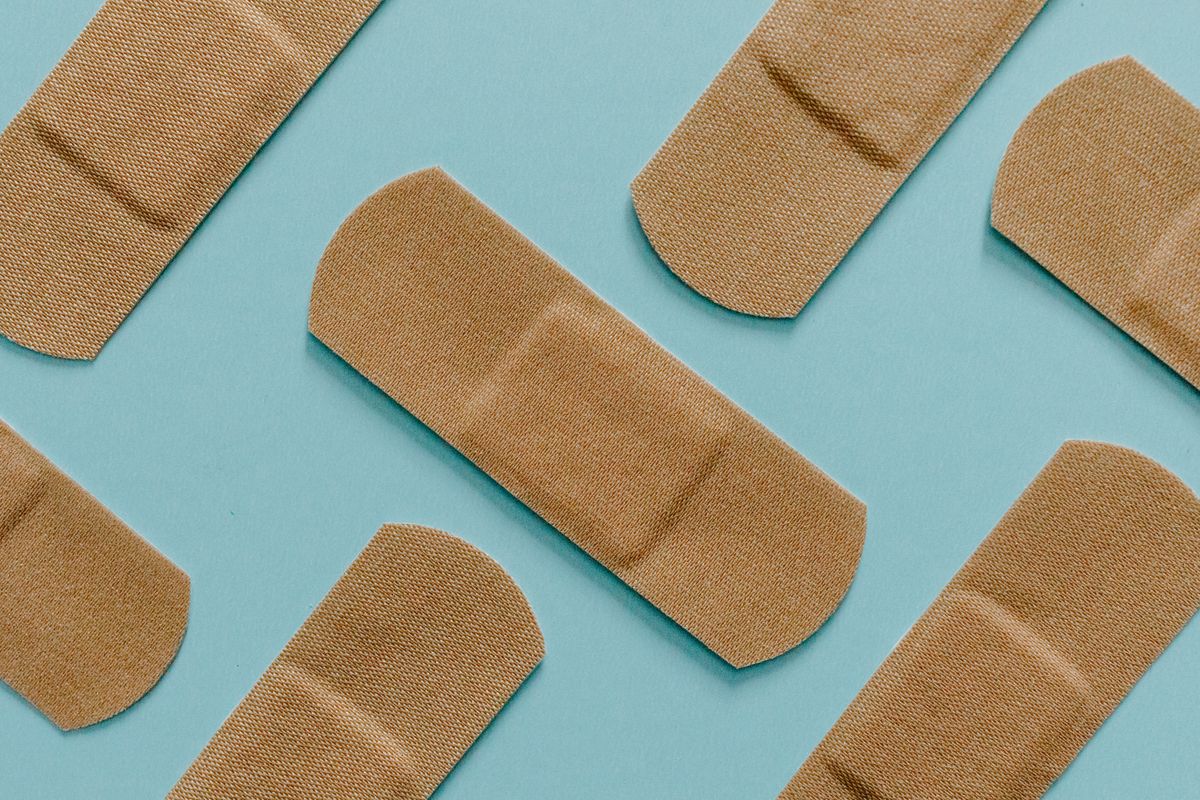Introducing a “smart bandage,” which can help chronic wounds heal faster
With the help of some new medical technology, treating chronic wounds may become easier.

A few minutes every morning is all you need.
Stay up to date on the world's Headlines and Human Stories. It's fun, it's factual, it's fluff-free.
A chronic wound doesn’t follow the usual steps of healing. Instead, a chronic wound will often just kind of stay in the inflammation stage. They’ve become a more noted health problem over the past few decades because of their “increasing incidence and greater recognition of associated morbidity and socio-economic burden,” according to some experts. The more common types of chronic wounds are things like diabetic ulcers and traumatic wounds.
With the help of some new medical technology, treating chronic wounds may become easier. Researchers at Northwestern University developed a “smart bandage,” which shows promise in a recent study. This wearable piece of biotech monitors a chronic wound and promotes healing.
“The device consists of two parts – one reusable, flexible printed circuit board and one disposable patch,” explains Dr. Wei Gao, who co-authored research from the California Institute of Technology. “The disposable patch contains biosensors, electrodes, and drug-loaded hydrogels.”
The biosensors monitor what’s going on with the wound. To help with healing, the smart bandage can apply electrical stimulation, which is a method for encouraging wounds to heal. And it also allows the controlled release of anti-inflammatory and antimicrobial drugs.
“With stimulation and sensing in one device, the smart bandage speeds healing, but it also keeps track as the wound is improving,” says Dr. Artem Trotsyuk, who helped lead the study.
There’s a lot of potential here. In animal testing, the smart bandages successfully gave researchers real-time updates about wound conditions and metabolic states. And there was also evidence that the devices sped up the healing process of chronically infected wounds like those found in humans.
But there’s still more to this story. According to Dr. Jenna Cash, principal investigator of the skin wound research group at the University of Edinburgh, who wasn’t involved in the study: “Part of the issue we have [with chronic wounds] is that we don’t really understand the mechanisms by which they form. And without us understanding the precise cellular and molecular mechanisms behind their formation, and their persistence, it’s tricky to try and figure out how to reverse that process.”




Comments ()